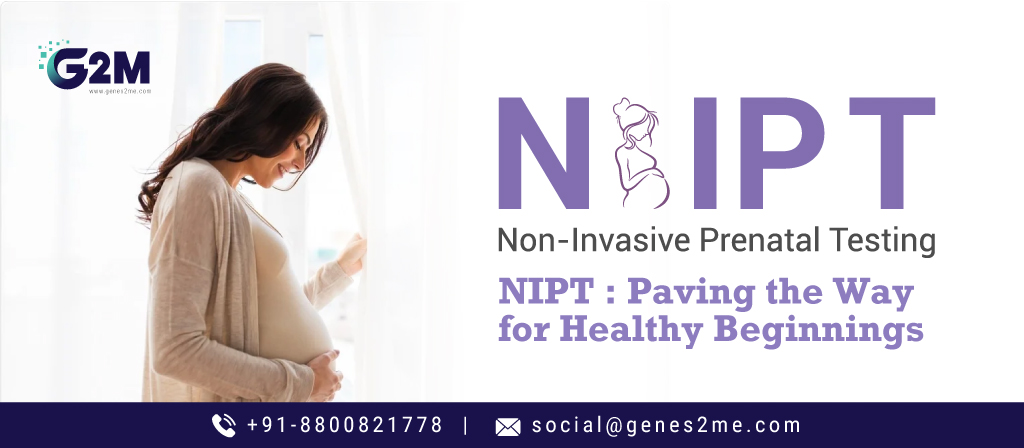Non-Invasive Prenatal Testing (NIPT) and Its Benefits in Prenatal Care

From the moment those two pink lines appear on the pregnancy test, expectant parents embark on a journey of anticipation, dreams, hopes, and a myriad of emotions. With the excitement of knowing no bounds comes a sense of responsibility which starts as soon as these expectant parents make their first OBGYN clinic visit. A crucial component of the visits to these OBGYN clinics involves prenatal screening tests like NIPT which are designed to assess the genetic health and development of the fetus. In the realm of prenatal care, there are a series of tests that are sometimes simultaneously or sequentially performed according to the gestational age of the pregnancy. One such test is Non-Invasive Prenatal Testing which is usually done starting from 10 weeks of gestation. It is often recommended after a series of serum marker tests and ultrasound scans that screen for the risk of common chromosomal aneuploidies in the unborn child.
NGS Based Prenatal Genetic Screening
NIPT is a Next-generation sequencing (NGS) based genetic screening test that employs the use of low-pass whole genome sequencing for the detection and analysis of chromosomal abnormalities. Unlike other invasive traditional methods, like Amniocentesis or Chorionic villus sampling, NIPT does not involve any invasive procedures for drawing the sample for testing.
NIPT works on analyzing cell-free fetal DNA circulating in the maternal blood for chromosomal abnormalities with just 10 ml of maternal blood samples. The majority of cell-free DNA (cfDNA) in the maternal blood originates from the mother herself, with the fetal component (cell-free fetal DNA -cffDNA) contributing approximately 10–20% of the total. This cffDNA is originally of placental origin and serves as a representation of the fetal karyotype.

Recommended by Medical Authorities
The medical bodies worldwide have made sincere efforts to validate the accuracy and reliability of NIPT as a screening tool in pregnancy for Down syndrome and other common aneuploidies and indeed it has shown promising results as an accurate screening tool. Medical authorities like ACOG (American College of Obstetrics and Gynaecology) and SMFM (Society for Maternal-Fetal Medicine) endorse NIPT as the most sensitive and specific prenatal screening option versus traditional screening methods and recommend that all pregnancies should be screened with NIPT.
NIPT is a screening test and not a diagnostic test. So, the results should be confirmed through invasive reflex tests like amniocentesis or CVS.
Advantages of NIPT screening
- It’s a non-invasive genetic screening test that doesn’t pose any risk to the fetus while testing for abnormalities.
- Testing can be conducted from very early weeks in gestation as early as 10 weeks, leaving time for informed decision-making.
- Gives an accurate analysis for common trisomies like Trisomy 21, 18, and 13 along with other sex chromosomal aneuploidies.
G2M NIPT Features
- Our NIPT solution covers analysis for all 23 pairs of chromosomes for common trisomies, also covering more than 50 reported micro-deletions.
- Our solution offers a processing time of just 4 days from sample preparation to report release.
- Complementary bioinformatics data analysis software – “Cliseq Interpreter” access.
